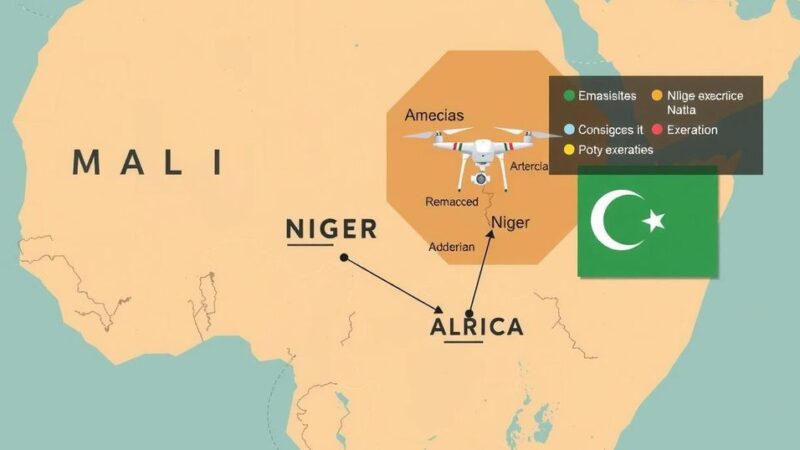Nations are presently convening in Riyadh to address serious issues of land degradation and desertification due to climate change. A United Nations report highlights that over 75% of the world’s land has become drier, affecting billions by the century’s end. Central discussions include financing strategies for drought response and vital solutions to mitigate food insecurity and facilitate international cooperation to combat these pressing challenges.
This week, nations convened in Riyadh, Saudi Arabia to address the troubling issue of widespread land degradation and desertification resulting from climate change. The United Nations highlighted a significant report indicating that over three-quarters of the world’s land experienced drier conditions from 1970 to 2020. With the effects of drought worsening, it is projected that nearly five billion people could be impacted by the end of the century, which underscores the urgency of the situation.
Discussions at the summit are primarily focused on strategies to effectively manage droughts and improve resilience against increasingly arid conditions. Notably, negotiators have yet to reach consensus on whether developed nations should be responsible for financing global drought response initiatives. A financial commitment was announced from Saudi Arabia, totaling $2.15 billion, with an additional $10 billion pledged by the Arab Coordination Group to support vulnerable countries.
Experts warn that without adequate intervention, the combination of rising temperatures and reduced water availability could exacerbate food insecurity and lead to increased migration due to harsh living conditions. Although various solutions, including improved land management and efficient water usage strategies, were proposed, the necessity for a cohesive international approach to tackle these issues remains paramount.
The summit reflects a critical juncture in addressing desertification and its alarming implications for both ecosystems and human populations worldwide.
UNCCD chief Ibrahim Thiaw stated, “The drier climates now affecting vast lands across the globe will not return to how they were.” Furthermore, lead author Andrea Toreti emphasized that resolving these issues demands “coordinated international action and an unwavering commitment.”
The current discussions surrounding desertification and land degradation stem from escalating global temperatures attributed to climate change. Research has shown a marked increase in arid conditions, which poses a significant threat to biodiversity, agriculture, and water resources. The recent United Nations report emphasizes the urgency of these challenges, particularly as they disproportionately affect vulnerable regions worldwide. As nations continue to grapple with the consequences of climate change, multilateral cooperation is deemed essential for effective solutions and adaptation strategies to combat land degradation and its widespread effects on human livelihood.
In summary, the ongoing summit represents a crucial effort to devise strategies for counteracting the adverse effects of land degradation and desertification exacerbated by climate change. With significant global population increases projected to suffer from drought-related challenges, international collaboration is necessary for successful mitigation and adaptation. Ultimately, addressing these vital issues demands proactive engagement, funding commitments, and a concerted effort to implement sustainable practices that protect ecosystems and support communities.
Original Source: apnews.com






